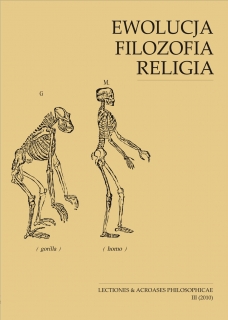Adaptacje i ewolucyjna inercja ludzkiego umysłu
Słowa kluczowe:
ewolucja, psychologia, umysł, adaptacjaAbstrakt
<p><strong>Adaptations and evolutionary inertia of human brain </strong></p><p> </p><p>Human brain and its functions evolved under selection pressures. There are at least a few evolutionary approaches to human mind, behaviour and/or preferences. Apart of sociobiology, human behavioural ecology HBE, it is evolutionary psychology EP that have been developed in the last 25 years. EP differs with other approaches to human mind in methodology and in the attitude to human behaviour adaptability. EP methodology, the Environment of Evolutionary Adaptedness and mind modularity concepts, as well as examples of psychological mechanisms related to adaptations acquired in our evolutionary past that do not need to increase biological fitness in modern societies are discussed. These adaptations are: 1. mechanism of child attachment; 2. Westermarck effect that explains the emergence sexual aversion to close relatives in childhood and 3. relationship between man's socio-economic status and his reproductive success in the societies with socially enforced monogamy and effective contraconception. In a few last thousands years man's environment changed dramatically, but due to lack of parallel strong selection pressure, human brain and mind almost did not change. This is why humans have still some psychological mechanisms that might not be perfect adaptations nowadays. EP does not excuse any human behaviour as EP opponents claim, it only explains the evolutionary roots of psychological mechanisms and preferences. EP provides scientists with the new insight to human mind.</p>Opublikowane
31-12-2010
Numer
Dział
Artykuły [1043]

